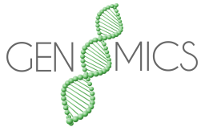Genozymes GE3LS Project: A Methodological Approach to Environmental Impacts and Public Engagement
GE3LS Project Leader: David Secko, Concordia University
The goal of this genomic research is to identify, analyze and develop potential enzymes in fungi that can be used to convert plant material into biofuels, biochemicals and other products for industrial use. The project is designed to produce significant benefits for Canada, and thereby raises several important questions related to the environment, government policy and public perception, among other broad areas of GE3LS research.
For example, currently little relevant data is available to assess the environmental impact and potential sustainability of such conversions because no commercial-scale cellulose-based operation yet exists in Canada. This is because existing first generation bioconversion processes and biofuels production facilities in Canada are relatively novel and have not yet been subject to detailed scientific scrutiny for their overall environmental impacts and sustainability implications. Furthermore, Canadians have not yet had a broad public dialogue on the policy issues and societal trade-offs related to the conversion of plant material into biofuels and biochemicals. This is despite past experiences that have shown that public perception will have an important influence on the assessment of new genomic technologies.
We will address these questions in two ways. First, we will develop a general framework to assess the environmental sustainability of genomics-based methods of converting plant material into biofuel. This work will draw upon environmental experiences and the application of genomics based tools in more “mature” biofuels jurisdictions from around the world. The results from this analysis will form the scientific foundation and basis for development of protocols to assist our own scientists in making informed decisions about the environmental implications of their research and will guide future decisions for reducing adverse environmental impacts and ensuring sustainability of resources in the long term.
Second, we will investigate effective communication and engagement strategies related to the results of our genomics project. This will involve the development and testing of various models of science journalism. We will develop guides to assist science journalists in communicating genomics-based innovations. Finally, an important part of our studies will be to engage the public in informed discussion of our genomics-project results.
